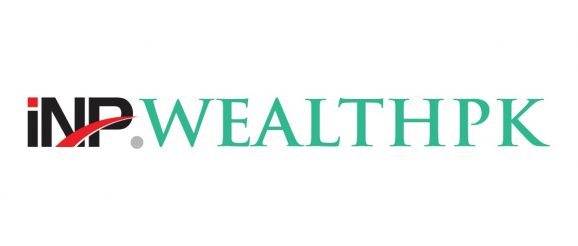Pakistan Moves Towards Agri Innovation, Digitalization

• First-ever state-of-the-art collateral management company set up
• Company entrusted with setting up state-of-the-art warehouses for farmers to store and preserve their products
ISLAMABAD, Oct 7 (INP-WealthPK): Pakistan is an agricultural country with enormous potential to grow a variety of products. Currently, agriculture is worth Rs3 trillion, contributing one-fifth to the overall GDP. Wheat, maize, cotton, sugarcane, rice, and oilseeds play a pivotal role in meeting domestic market needs.
Unfortunately, the present system is not a cheering one for agriculture finance, and there is no proper stabilization mechanism at the government level for the storage of products, which affects their quality and export.
To modernize and standardize the system for Agri product storage, the government, through a consultative mechanism engaging significant stakeholders within the agriculture value chain, has formulated the Collateral Management Company (CMC) Regulations, 2019. The underlying objective is to develop the Electronic Warehouse Receipt (EWR) system in Pakistan.
Pakistan’s first state-of-the-art collateral management company is Naymat Collateral Management Company Limited established under CMC Regulations 2019 as a public limited entity. The Company is entrusted with advanced aggregated warehouses in which the farmers can store and preserve their products.
In return, the system-generated receipts will be given to the growers, which can be used for borrowing from commercial banks. As a result, finance will be available for the next cultivation.
All the necessary collateral management measures like insurance, inspection as well as information about the crop such as quality, grading, quantity, estimate price will be enclosed in the receipt. Initially, the Company will deal in maize and rice in the first phase.
The scope will then be scaled up progressively to include other crops like oilseeds, wheat, and other agricultural products.
The key source of income for the warehouse will be rental income. This payment will contain monthly storage fee, quality and quantity verification, maintenance, issuance of Electronic Warehouse Receipt (EWR), pre-cleaning, daily fumigation, insurance of deposited Agri commodities, and labour charges.
Additionally, other subsidiary services, i.e. drying, additional cleaning/processing, and packaging may be charged separately from the depositor.
The system for the storage of agricultural commodities not only facilitates the growers but also fuels the economy. With the Warehouse Receipt (WHR), growers can also trade their products at the Pakistan Mercantile Exchange (PMEX).
On the other hand, loan provision will play a vital role in the interaction between provincial governments, commercial banks, and farmers.
According to an official of the Collateral Management Company, this platform will boost the farmers’ confidence in their upcoming cultivation. This initiative, he added, will help digitize the economy.
He said the role of mediators will be reduced largely and quality export will be boosted, through which Pakistan can stabilize its economy and rupee against the dollar.
Pakistan is rapidly moving towards innovation and digitalization in the agriculture sector in such a manner that the focus can be made to maximize the export of agriculture products, to address post-harvest losses, and to enhance growers’ access to credit, financial inclusion, and field influence.
This initiative may bring new business opportunities and avenues in the sectors of insurance and banking.
Collateral Management Company is only operational in some areas of Pakistan. There is a need to maximize its strength so that economic activities can accelerate.
INP/Omer Bilal
